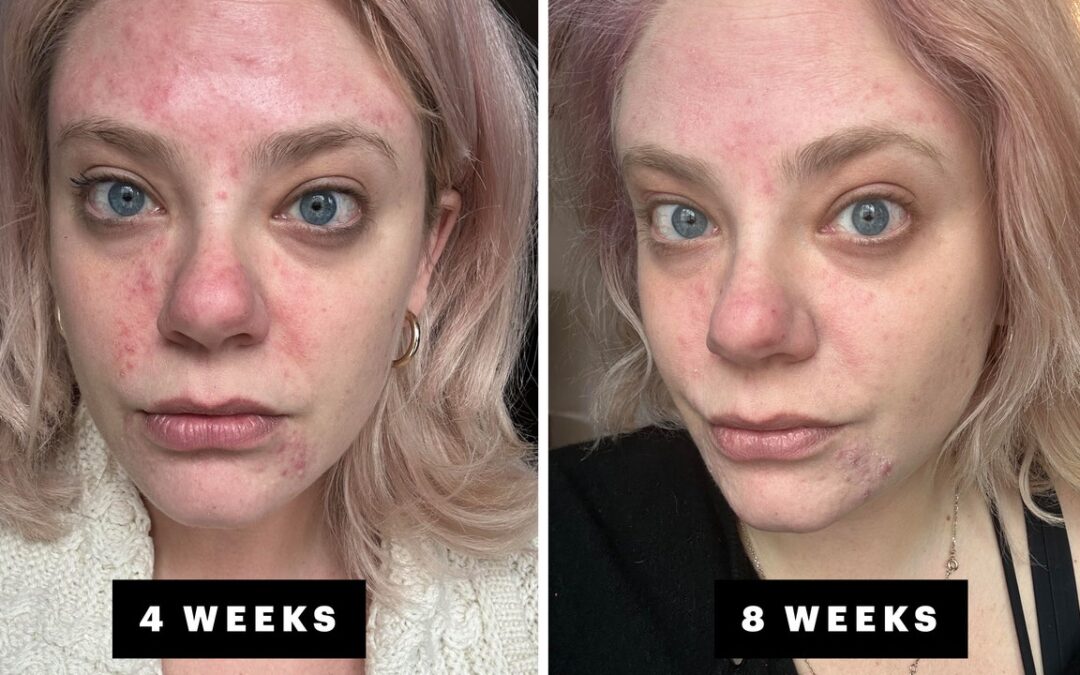There are many contributing factors with hormonal acne, including genetics, hormonal fluctuations, and medical conditions like polycystic ovarian syndrome (PCOS). As a result, it can be more difficult to treat than other types of acne.
“Hormonal acne can be treated with many of the same medications we use for any type of acne: topical anti-inflammatory agents [like niacinamide], topical retinoids, and isotretinoin, [a prescription oral medication],” says Mohiba Tareen, a board-certified dermatologist in Minnesota; I go to her clinic for treatment. Certain birth control pills, including Ortho Tri-Cyclen, are also FDA approved to treat acne because they help balance the hormone fluctuations that can cause breakouts. And the blood pressure medication spironolactone, FDA approved in 1960, has been used off-label to treat hormonal acne in women for about two decades. Other treatments include topicals, such as Differin (adapalene) and azelaic acid.
It’s worth noting here that spironolactone is not the only acne treatment you shouldn’t use when you’re pregnant or trying to become pregnant. The high level of vitamin A in a retinoid can also be harmful to a developing baby.
Because of these roadblocks, I was looking for something that could help calm my skin without interfering with family planning. Enter Winlevi, a prescription topical for acne that some say could replace spironolactone as a go-to treatment for hormonal acne. It was FDA approved in 2020 — the first new acne medication approved since Accutane in 1982. After hearing good things and being curious about anything that might help me, I booked an appointment with my dermatologist and shared my story, with all its ups and downs, in hopes of giving this new prescription cream a try.
What Is Winlevi and How Does It Work?
Winlevi is a new prescription cream for hormonal acne that should be applied to affected areas twice a day. “Winlevi, generic name clascoterone, is a topical androgen — or male hormone — blocker,” explains Dr. Castilla. “Its exact mechanism of action is not known, but it is thought to inhibit the androgen receptors in sebaceous glands, leading to decreased sebum production.”
Winlevi is FDA approved for people 12 and over and can be used by both men and women, setting it apart from spironolactone, which, due to its side effects, is only prescribed to women (men have developed breasts while taking the medication). “[Winlevi] is the only topical acne product that targets the oil production that leads to acne,” notes Dr. Tareen. “I also like that this medication is safe to use for males and transgender patients who cannot take the oral options.” (Because Winlevi is applied topically, it only blocks male hormones in the skin; it doesn’t have the same risks as oral spironolactone, which can block male hormones in the body.)

